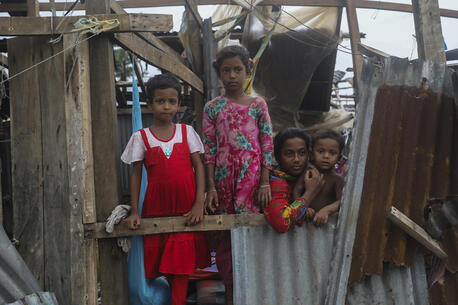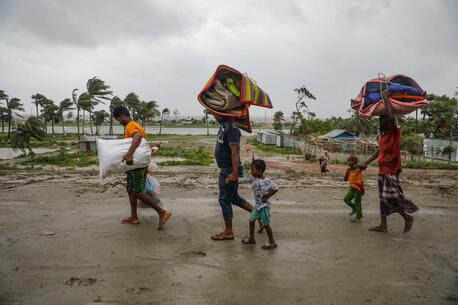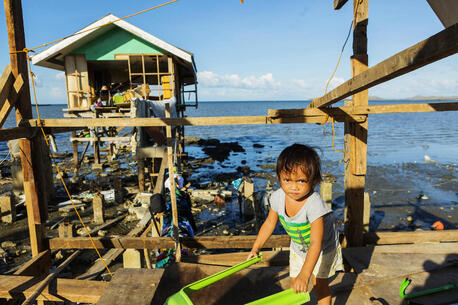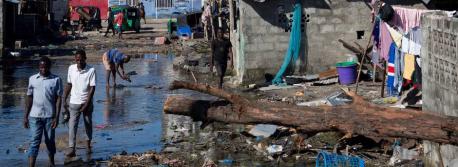
Cyclone Relief
As with other weather disasters, when a cyclone hits, UNICEF delivers critical relief to the most vulnerable children and families — then works to help communities recover and build back better.
What is a cyclone?
A cyclone, or tropical cyclone, is an extreme weather event that occurs when winds rotate inwards to low atmospheric pressure over warm tropical or subtropical waters. Cyclones can form year round over the Pacific Ocean, with peak season running from November to April.
Why children are vulnerable to cyclones
When a cyclone hits, heavy rains and flooding can devastate coastal and inland areas and cause landslides. Cyclones typically hit around harvest season, which is particularly devastating for agricultural communities, increasing health and safety risks.
"The most vulnerable children are at risk of drowning and landslides, deadly diseases including cholera and malaria, malnutrition from reduced agricultural production and psychological trauma — all of which are compounded when health centers and schools are impacted," Gautam Narasimhan, UNICEF Senior Advisor on Climate Change, points out. "In the long term, cycles of poverty can linger for years and limit the capacity of families and communities to adapt to climate change and to reduce the risk [from these] disasters."
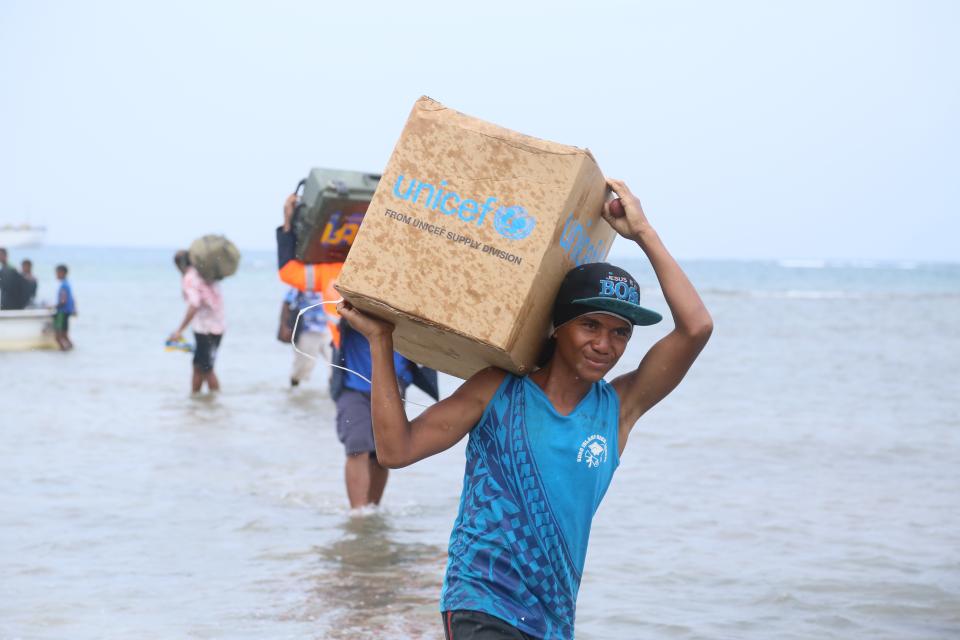
After Cyclone Winston slammed into Fiji, UNICEF delivered water, hygiene and sanitation (WASH) supplies to Koro Island, one of the hardest hit areas. ©UNICEF/UN011310/Hing
How UNICEF helps cyclone victims
UNICEF responds to hundreds of emergencies every year, including some of modern day’s worst cyclones.
When cyclones and other natural disasters strike, UNICEF is among the first on the ground, often prepositioning supplies in advance of an emergency response. UNICEF's supply operation, which includes the largest humanitarian supply warehouse in the world, enables the delivery of lifesaving supplies to anywhere in the world within 48 to 72 hours.
Working with local partners, UNICEF provides safe drinking water, hygiene and sanitation kits, medicine, nutrition and more. UNICEF also creates Child-Friendly Spaces and temporary classrooms, safe spaces for displaced children to learn and play and receive psychosocial support. UNICEF protection teams work to reunite separated children with family members.
Following the emergency response, UNICEF works to help communities recover and build back better, assessing risks and helping strengthen health care systems, schools and other social services so they become more resilient.
Learn more about how UNICEF works to address climate change and its impact on children.
Help cyclone victims rebuild their communities and prepare for the next emergency.
